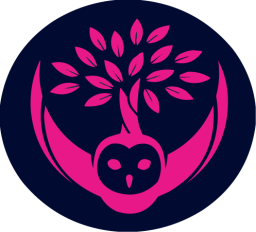Understanding the Roles of Life Coaches, Counsellors, and
EFT Practitioners

In the pursuit of personal growth and mental well-being, individuals often seek the assistance of professionals who can guide, support, and facilitate their journey. Life Coaches, Counsellors, and EFT Practitioners are three such professionals, each offering unique services and methodologies. Understanding the differences between these roles is crucial for selecting the most appropriate type of support.
Focus and Approach
- Life Coaches: Future-oriented, focusing on goal achievement and personal development.
- Counsellors: Past and present-oriented, addressing mental health issues and emotional well-being.
- EFT Practitioners: Present-oriented, combining cognitive and acupressure techniques to alleviate stress and emotional pain.
Training and Regulation
- Life Coaches: Training varies; certification is beneficial but not mandatory.
- Counsellors: Advanced degree and state licensure required; stringent regulatory standards.
- EFT Practitioners: Specialized training and certification available; not government-regulated.
Techniques Used
- Life Coaches: Goal-setting, motivational strategies, action planning.
- Counsellors: Therapeutic techniques such as CBT, psychodynamic therapy, humanistic therapy.
- EFT Practitioners: Tapping on meridian points, cognitive focus, verbal affirmations.
Life Coaches are professionals who assist clients in setting and achieving personal and professional goals. They focus on the present and future, helping clients identify their aspirations, overcome obstacles, and develop actionable plans.
Training and Certification
Life Coaches typically undergo training programs offered by various organizations. Certification is not legally required but can enhance credibility. Prominent certifying bodies include the International Coach Federation (ICF) and the Center for Credentialing & Education (CCE).
Methodology
Life Coaching involves goal-setting, action planning, and accountability. Coaches use techniques such as:
- Questioning: To help clients gain clarity on their goals and motivations.
- Motivational Strategies: To encourage progress and sustain momentum.
- Action Planning: Creating step-by-step plans for achieving goals.
Typical Clients
Life Coaches work with individuals seeking to improve specific areas of their lives, such as career advancement, personal development, or work-life balance.
Life Coaches
Before we unpack and explore each modality, here is an overview.
How do the approaches and qualifications of Life Coaches, Counsellors, EFT Practitioners, and differ, and which type of professional support is best suited to various individual needs and goals.
"Healing Involves helping people see how their emotional patterns manifest in physical reality and helping them to realign with a more holistic pattern of Universal Consciousness"
~ Martin W. Ball ~
Counselors, also known as therapists, are mental health professionals who address emotional, psychological, and behavioral issues. They work with clients to understand and resolve past and present issues affecting their mental health.
Training and Certification
Counsellors are required to have advanced degrees in psychology, counselling, or social work. They must be licensed by state regulatory boards, which ensures adherence to professional and ethical standards. Certifications may be obtained through bodies such as the American Counselling Association (ACA).
Methodology
Counselling involves various therapeutic approaches, including:
- Cognitive Behavioural Therapy (CBT): To change negative thought patterns and behaviours.
- Psychodynamic Therapy: To explore unconscious motivations and past experiences.
- Humanistic Therapy: To foster self-actualization and personal growth.
Typical Clients
Counsellors work with individuals experiencing mental health issues such as depression, anxiety, trauma, and relationship problems. They also assist those seeking personal insight and growth.
Counsellors
Emotional Freedom Technique (EFT) Practitioners use a form of energy psychology that combines cognitive therapy and acupressure. EFT is used to alleviate psychological stress and emotional pain.
Training and Certification
EFT Practitioners typically receive training through specialized programs. Certification can be obtained from organisations such as the EFT International (EFT). While not regulated by governmental bodies, certification ensures a standard level of competence.
Methodology
EFT involves tapping on specific meridian points on the body while focusing on a specific issue. The process includes:
- Identification of Issues: Clients identify emotional or physical issues they want to address.
- Tapping Sequence: Practitioners guide clients through a series of tapping on meridian points.
- Verbal Affirmations: Clients articulate their feelings and affirmations during tapping.
Typical Clients
EFT Practitioners work with individuals experiencing stress, anxiety, trauma, and physical pain. It is also used for performance enhancement and emotional well-being.
EFT Practitioners
If you're intrigued about the power of energy coaching and personal growth, why not schedule a free 30 minute discovery call?
This conversation will delve into energy coaching and allow you to ask questions or share concerns.
Prior to your call, you will receive a thought-provoking 6-question discovery questionnaire to lay the foundation for your own personal development.
Choosing between a Life Coach, Counselor, or EFT Practitioner depends on an individual's specific needs and goals. Life Coaches are ideal for those seeking guidance and support in achieving future goals. Counsellors are suitable for individuals dealing with mental health issues and seeking emotional healing. EFT Practitioners offer a unique approach to managing stress and emotional pain through energy psychology techniques.
Understanding the distinct roles and methodologies of these professionals can empower individuals to make informed decisions and embark on a path towards personal growth and well-being.
References
- International Coach Federation (ICF). (n.d.). Retrieved from icf.com
- American Counselling Association (ACA). (n.d.). Retrieved from counseling.org
- EFT International (EFTi). (n.d.). Retrieved from eftinternational.org
Counsellors
Other ways to connect
Telephone: +44 (0) 7958 427 854
E-mail: mark@theenergyalchemist.co.uk
We need your consent to load the translations
We use a third-party service to translate the website content that may collect data about your activity. Please review the details in the privacy policy and accept the service to view the translations.






